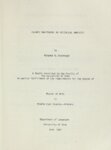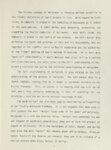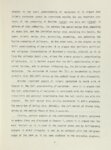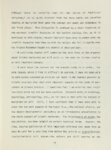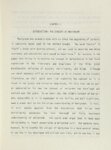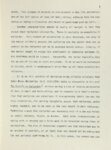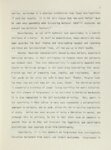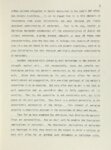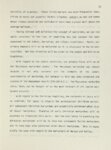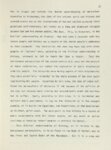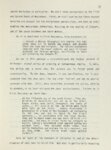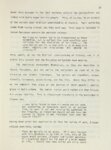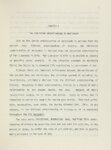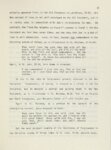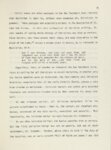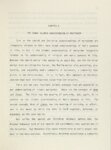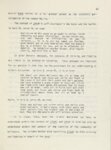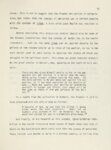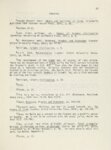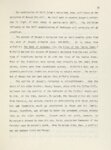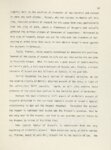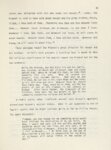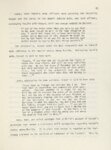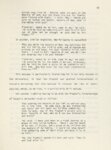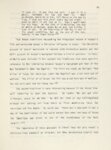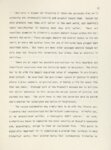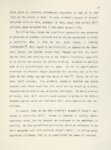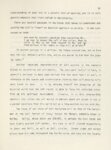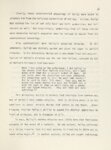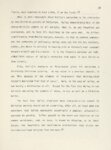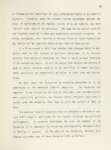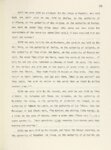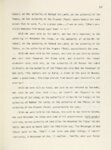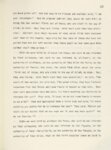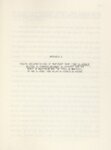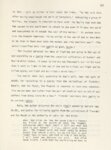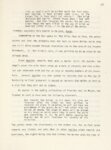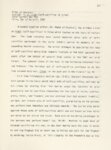| Description |
The concept of martyrdom has probably been with us since the beginning of culture; it certainly dates back to the ancient Greeks, who gave us the term "martyr, II meaning "witness, II or one who gives testimony based on actual experience. The purpose of this thesis is to compare and contras t the way martyrdom has been approached and developed by the major monotheistic religions of Judaism, Christianity, and Islam, with particular emphasis placed on the Islamic traditions. In every instance we find that a religion's concept of martyrdom is integrally related to its more fundamental sense of purpose. Thus the Jewish understanding of martyrdom is consistent with the Jewish belief that the Jews have a special relationship with God, and, as such, may at times have to endure suffering and sacrifice in order to keep God's good graces. The Jewish martyr dies, then, in order to appease God and to restore the Jewish people to a state of grace. The Christian martyr, by contrast, dies emulating his Savior, Jesus Christ, who was a martyr nonpareil. It is by following the example of Jesus that a Christian hopes to find life everlasting in the Kingdom of God. The Christian martyr dies a witness to Jesus Christ's supreme sacrifice, which was meant to pave the way for man's salvation. By emulating his Savior, the Christian confirms the value and meaning of Christ's sacrifice. The Islamic concept of martyrdom is likewise defined according to the Islamic definition of man's purpose in life. With regard to Sunni Islam, an emphasis is placed on the Community of Believers as it exists in the here-and-now. A Sunni martyr dies defending, protecting, and promoting the Muslim Community of Believers. With Shici Islam, the emphasis is placed on the family of the Prophet. The Sufi martyr dies defending the honor and prestige of cA1i and his descendants, who are regarded as the rightful heirs to Muslim leadership and the custodians of the "inner" meaning of God's message to mankind. It is this more "mystical" understanding of God's message that gives Shi'ism a certain Christian-like aura, and which gives to the Shici understanding of martyrdom a character not unlike the Christian understanding of martyrdom. The Sufi understanding of martyrdom is also related to the Sufi understanding of the purpose of religion. The Sufi martyr dies in a joyous rapture, knowing that he is about to surrender entire 1 y to the Divine Presence. This, of course is in keeping with the Sufi belief that man's most edifying undertaking is that of searching for and attaining a complete and wholly personal knowledge of God. The word "martyr" has also been used to describe the self-sacrifice of politically motivated fighters. It is our argument that when used in this context the word "martyr" loses some of its power and poignancy. Martyrdom is a rare and precious thing. Martyrs have commanded the awe and respect of countless generations; they are as much the product of legend as of history. It is the martyrdoms of Jesus, Husayn, and Hallaj that give the word "martyr" its immense power and poignancy. Although modern "martyrs" may deserve our respect, they are in no instance of a similar stature than Jesus, Husayn, or Hallaj. |


